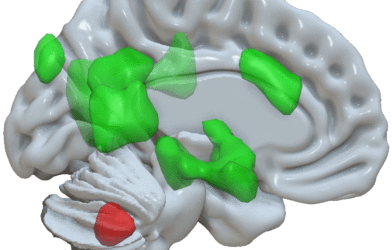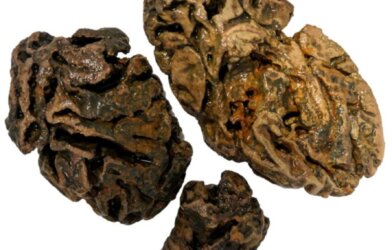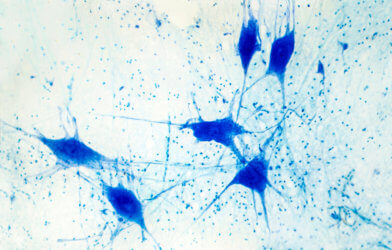Scientists say that regular drinking causes brain to age much faster, especially in older adults.
PHILADELPHIA — The debate over alcohol carrying health benefits continues to swing back and forth. Researchers at the University of Pennsylvania now say that drinking alcohol can cause harmful changes to the size and structure of the brain.
We’re often told that moderate drinking is safe, but now scientists say even light drinking is dangerous. The study involving more than 36,000 people also reveals that consuming two drinks a day is linked with changes in the brain equivalent to aging two years. In fact, the more you drink, the more you’re putting your brain at risk.
Previous research concludes that heavy drinkers have alterations in brain structure and size that are associated with cognitive impairments. But, according to the new study, alcohol consumption even at levels most would consider modest – a few beers or glasses of wine a week – may also carry risks to the brain.
As an example, for participants in their 50s, as average drinking among individuals increases from one alcohol unit (about half a glass of beer) a day to two units – a full glass of beer or wine – there are associated changes in the brain equivalent to aging two years. Going from two to three alcoholic units at the same age was like aging three-and-a-half years.
“The fact that we have such a large sample size allows us to find subtle patterns, even between drinking the equivalent of half a beer and one beer a day,” says corresponding author Doctor Gideon Nave, an assistant professor in the Wharton Neuroscience Initiative at Penn, in a statement.
Is alcohol safe to drink occasionally or not?
The findings go against recommendations by health experts and numerous studies that say drinking alcohol is safe in moderation.
“These findings contrast with scientific and governmental guidelines on safe drinking limits,” says Henry Kranzler, who directs the Penn Center for Studies of Addiction. “For example, although the National Institute on Alcohol Abuse and Alcoholism recommends that women consume an average of no more than one drink per day, recommended limits for men are twice that, an amount that exceeds the consumption level associated in the study with decreased brain volume.”
While strong evidence exists that heavy drinking causes changes in brain structure, including major reductions in grey and white matter, other previous studies have suggested that moderate levels of alcohol consumption may not have an impact. Some research even concludes that light drinking could benefit the brain in older adults.
Gray matters
The Penn team have conducted previous studies using the UK Biobank, a dataset with genetic and medical information from half a million British middle-aged and older adults. For this research, they were specifically looking at brain MRIs to calculate white and gray matter volume in different regions of the brain.
“Having this dataset is like having a microscope or a telescope with a more powerful lens. You get a better resolution and start seeing patterns and associations you couldn’t before,” says Nave.
To gain an understanding of possible connections between drinking and the brain, he explains that it was “critical” to control for confounding variables that could cloud the relationship. The team controlled for age, height, handedness, sex, smoking status, socio-economic status, genetic ancestry, and county of residence. They also corrected the brain-volume data for overall head size.
Volunteer participants responded to survey questions about their alcohol consumption levels, from complete abstention to an average of four or more alcohol units a day. When the research team grouped the participants by average-consumption levels, a small but apparent pattern emerged. The grey and white matter volume that might otherwise be predicted by the individual’s other characteristics was reduced.
Going from zero to one alcohol units didn’t make much of a difference in brain volume, but going from one to two or two to three units a day was associated with reductions in both grey and white matter.
“It’s not linear. It gets worse the more you drink,” says study first author Dr. Remi Daviet, an assistant professor of marketing at the University of Wisconsin. He notes that even removing the heavy drinkers from the analyses, the associations remained.
How alcohol affects aging in the brain
The lower brain volume was not localized to any one brain region, the findings show. To give a sense of the impact, the researchers compared the reductions in brain size linked with drinking to those that occur with aging. Based on their modeling, each additional alcohol unit consumed per day was reflected in a greater aging effect in the brain.
While going from zero to a daily average of one alcohol unit was associated with the equivalent of a half a year of aging, the difference between zero and four drinks was more than 10 years. In future work, the authors hope to tap the UK Biobank and other large datasets to help answer additional questions related to alcohol use.
“This study looked at average consumption, but we’re curious whether drinking one beer a day is better than drinking none during the week and then seven on the weekend,” says Nave. “There’s some evidence that binge drinking is worse for the brain, but we haven’t looked closely at that yet.”
Study authors also say the findings will hopefully prompt regular drinkers to reconsider how much they imbibe.
“There is some evidence that the effect of drinking on the brain is exponential,” adds Daviet. “So, one additional drink in a day could have more of an impact than any of the previous drinks that day. That means that cutting back on that final drink of the night might have a big effect in terms of brain aging.”
The findings are published in the journal Nature Communications.
South West News Service writer Stephen Beech contributed to this report.













